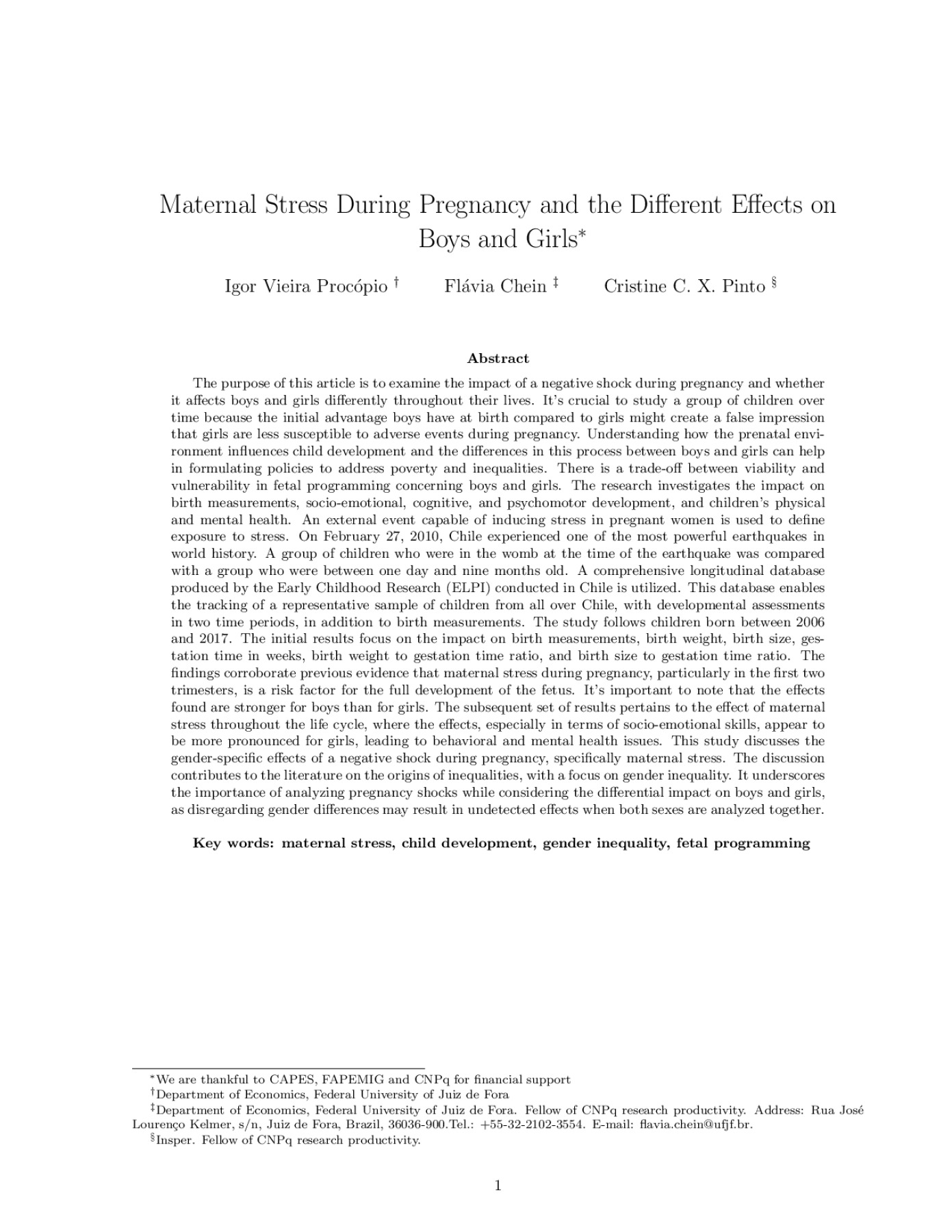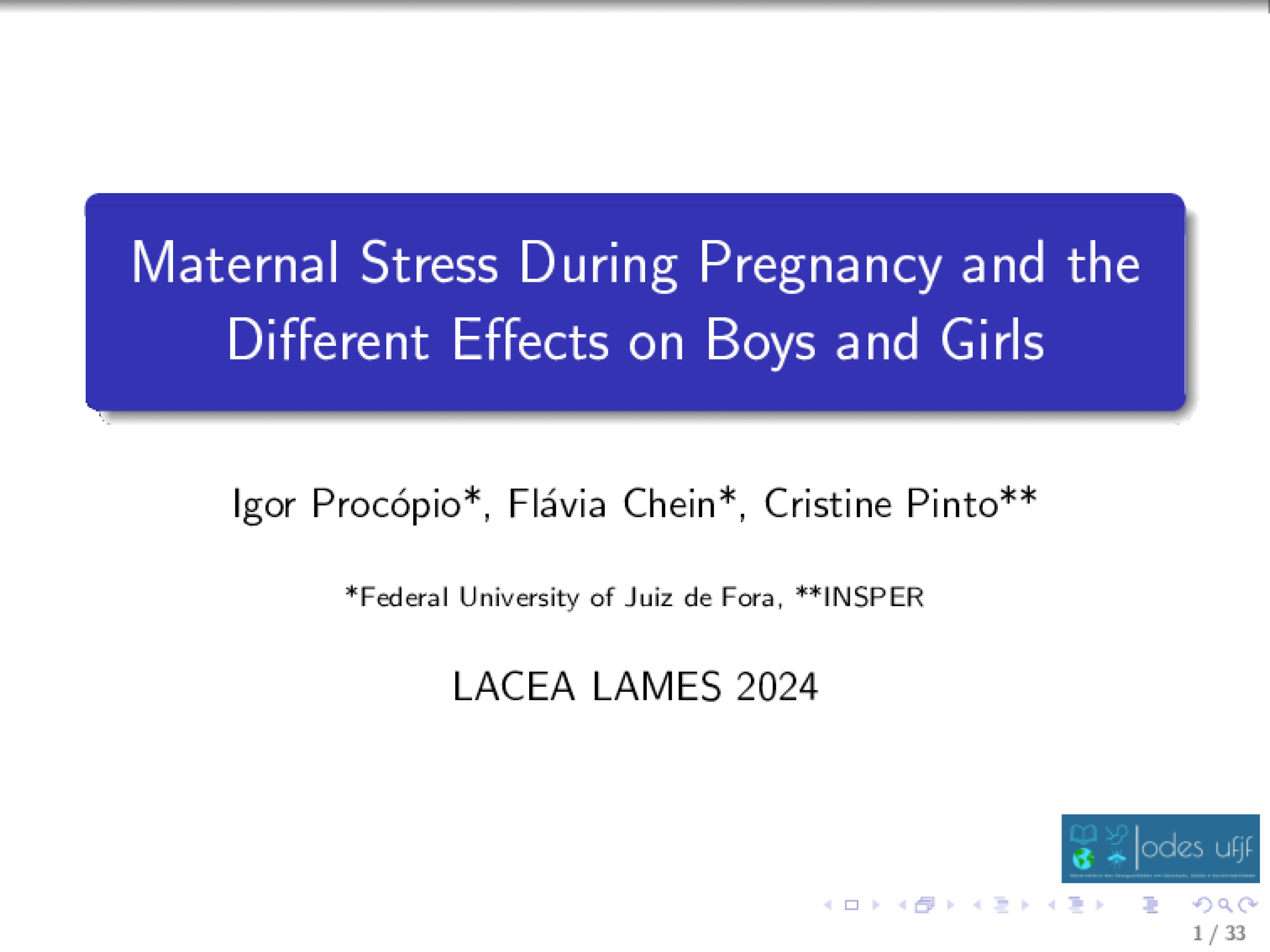2024 Latin American Meeting, Montevideo, Uruguay: November, 2024
Maternal Stress During Pregnancy and the Different Effects on Boys and Girls
Igor Vieira Procópio, Flávia Chein, Cristine Pinto
The purpose of this article is to examine the impact of a negative shock during pregnancy and whether it affects boys and girls differently throughout their lives. It's crucial to study a group of children over time because the initial advantage boys have at birth compared to girls might create a false impression that girls are less susceptible to adverse events during pregnancy. Understanding how the prenatal environment influences child development and the differences in this process between boys and girls can help in formulating policies to address poverty and inequalities. There is a trade-off between viability and vulnerability in fetal programming concerning boys and girls. The research investigates the impact on birth measurements, socio-emotional, cognitive, and psychomotor development, and children's physical and mental health. An external event capable of inducing stress in pregnant women is used to define exposure to stress. On February 27, 2010, Chile experienced one of the most powerful earthquakes in world history. A group of children who were in the womb at the time of the earthquake was compared with a group who were between one day and nine months old. A comprehensive longitudinal database produced by the Early Childhood Research (ELPI) conducted in Chile is utilized. This database enables the tracking of a representative sample of children from all over Chile, with developmental assessments in two time periods, in addition to birth measurements. The study follows children born between 2006 and 2017. The initial results focus on the impact on birth measurements, birth weight, birth size, gestation time in weeks, birth weight to gestation time ratio, and birth size to gestation time ratio. The findings corroborate previous evidence that maternal stress during pregnancy, particularly in the first two trimesters, is a risk factor for the full development of the fetus. It's important to note that the effects found are stronger for boys than for girls. The subsequent set of results pertains to the effect of maternal stress throughout the life cycle, where the effects, especially in terms of socio-emotional skills, appear to be more pronounced for girls, leading to behavioral and mental health issues. This study discusses the gender-specific effects of a negative shock during pregnancy, specifically maternal stress. The discussion contributes to the literature on the origins of inequalities, with a focus on gender inequality. It underscores the importance of analyzing pregnancy shocks while considering the differential impact on boys and girls, as disregarding gender differences may result in undetected effects when both sexes are analyzed together.
Preview



























































